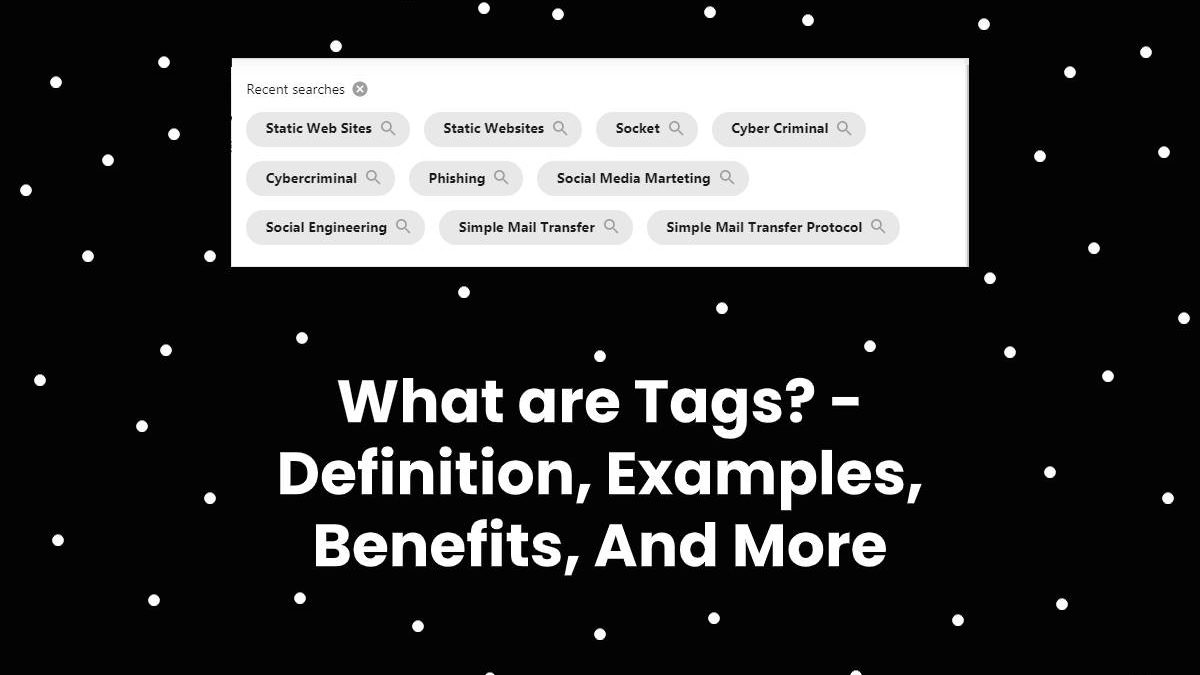Table of Contents
Definition Tags
On internet blogs or YouTube, you can come across the term “tags,” tags are marked or signposted. You can tag posts or written articles on the Internet. Tags are categories that roughly describe the post.
Here we explain what tags are and how we can use them.
- “tags” (pronounced [täks]) is an English word and means “catchword” or “label.”
- Tags are used on the Internet to categorize content and topics.
- In this case, the categorization serves the consumer because he can find content or find out about the content.
- It becomes clearer using an example: A blogger writes a text about “the use of tablets in everyday life.” For this, he uses the tags “tablet,” “everyday life,” and “technology.” a reader can find this text using the tags via search functions and, at the same time, know the subject of the article directly.
- In the age of the continuing internet boom, countless new articles, pictures, and videos get created every day. These can only be found in search engines if we appropriately link the content is to keywords. The relevance of the tags is, therefore, evident.
- However, tags and hashtags are not the same. The primary function appears similar, but hashtags in Twitter & Co. do not necessarily refer to the content itself, but instead to the opinion on the content.
Example
A writer writes an article about “being happy in everyday life.” He then specifies the following tags. “Happiness,” “Everyday Life,” “Instructions.”
Other users can then click on one of the tags to see additional posts that deal with the topic.
Benefits
Even though the Google search algorithm is now so intelligent that they can recognize what an article is about, tags are not yet superfluous. Tags are particularly suitable on your website or your content to offer their readers added value.
You can also create tag clouds on your blog that show in comparison how popular a keyword is or how often it gets used.
- Hashtags are mainly present on social media such as Twitter, Google+, and Facebook.
- They are preceded by the diamond symbol, for example, # luck
- [Tags] are only used locally on your website.
That means: When you click on a hashtag, you see articles on the topic that are available on the entire platform. These are other commentators or users who also used the hashtag in their post – be it useful or not.
If you click on a day, you will see further articles on the subject that are on this website. Most of them have the same author or a small group of authors.
Unlike hashtags, which everyone can use, you should only use [tags] if you will also write further articles on this topic/tag. Otherwise, a day brings no added value.
Let us take the example above: If the author does not write any further articles on the subject of “happiness” on his blog, he does not need to include the day. Because if readers then click on the day, you would only see the one article as a search result that you already know. That would be no added value.

